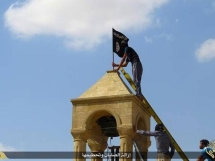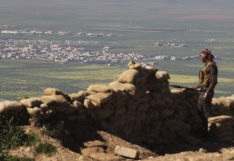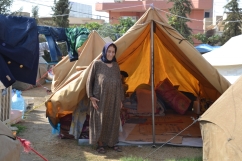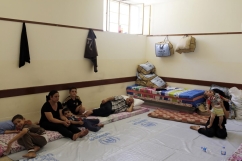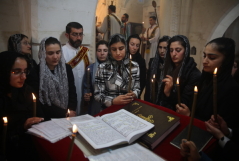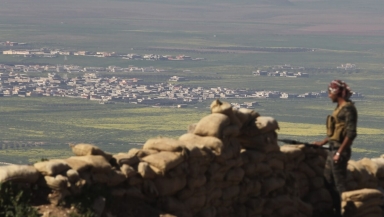
Ancient churches in Mosul have been used as slaughterhouses by Islamic State militants in Iraq, it has emerged.
According to International Christian Concern, an advocacy group based in Washington, several churches were used for slaughtering animals during Bakr-Eid, the Islamic Festival of Sacrifice.
St Ephrem Syriac Orthodox Church was among them, which was taken over by militants a year ago. In June, ISIS announced that it would be reopened as a "mosque of the mujahideen". Local Iraqi media reports at the time said it had been draped with Islamic State's notorious black and white logo, with "There is no God but Allah" and "Prophet Mohammed" written on it.
The Assyrian Monitor for Human Rights branded the latest news just one of a "series of violations of the Daash [ISIS] terrorist organisation of churches and religious temples in the city of Mosul".
Mosul was one considered the heartland of Iraq's Christian population, but was overrun by Islamic State jihadists on June 10 last year. Upon capturing the city, militants issued an ultimatum to Christians, telling them to convert to Islam, pay a tax or flee. Those who refused to comply were murdered, and there are now believed to be none left in the city.
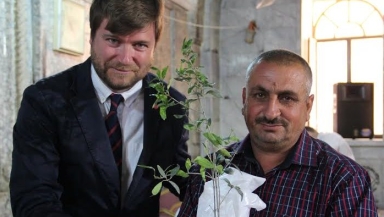
ISIS has declared ancient relics to be idolatrous, and has destroyed many religious sites in Iraq and Syria. On Sunday, Syria's antiquities chief said that the group had blown up the Arch of triumph, a historic monument in the 2,000-year-old city of Palmyra.
Militants have also released images of Christian paintings and statues being destroyed, and reports claim that the Mar Gorgis monastery north of Mosul has been used as a female detention centre.
A priest from Mosul told the Sunday Times last year that at least two churches in Qaraqosh, another Christian-majority city captured by ISIS, were being used as torture chambers.
"Most inside are Christians and they are being forced to convert to Islam," Abu Aasi said. "ISIS have been breaking all the crosses and statues of Mary."










